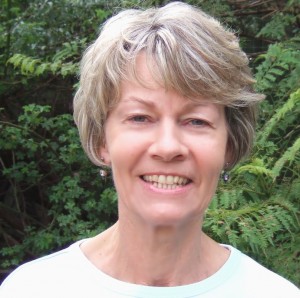Tell me a little about your practice... I am a board certified art therapist, licensed professional counselor and psychotherapist in Washington, DC. I see clients across the lifespan and specialize in working with Women Who Do Too Much. I also see therapists in training and provide post graduate and post license supervision. Through the creative process and talking, clients learn to connect their hearts and minds to live more wholeheartedly.
 Why did you decide to open a private practice?
Why did you decide to open a private practice?
I had a small private practice for a number of years while also working a full time job in public mental health. After having my daughter and living in Japan for some time last year, I new that I needed a better work life balance. In the summer of 2012, I decided to take the leap and step into the arena. My mantra continues to be that things are happening in the right time and right way for my business.
Clients that therapists find to be the most “difficult” are sometimes the ones who can teach them the most. What have you learned from your toughest clients?
Some of the most challenging clients that I worked with were very angry and rightly so. Underneath the anger was deep shame and fear. This story from Pema Chodron is one of the most special gifts those clients taught me: How To Defeat Fear: Once there was a young warrior. Her teacher told her that she had to do battle with fear. She didn’t want to do that. It seemed too aggressive; it was scary; it seemed unfriendly. But the teacher said she had to do it and gave instructions for the battle. The day arrived. The student warrior stood on one side, and fear stood on the other. The warrior was feeling very small, and fear was looking big and wrathful. The young warrior roused herself and went toward fear, prostrated three times, and asked, “May I have permission to go into battle with you?” Fear said, “Thank you for showing me so much respect that you ask permission.” Then the young warrior said, “How can I defeat you?” Fear replied, “My weapons are that I talk fast, and I get very close to your face. Then you get completely unnerved, and you do whatever I say. If you don’t do what I tell you, I have no power. You can listen to me, and you can have respect for me. You can even be convinced by me. But if you don’t do what I say, I have no power.”
What's your biggest pet peeve about private practice?
As with any new business, I would say mine is the growing pains. I work in a heavily saturated mental health provider community. I believe that there are enough clients for every provider. Focusing on building relationships in the community has been helpful to counterbalance the growing pains.
How did you discover or develop your practice “niche”?
I know that many women are caught in many double binds and in the never enough culture. Whether you a 20 something, single woman, a divorced working mother, a stay at home mother, a widow, or another woman in transition, I know that many women use people pleasing, perfectionism, numbing, and performing as a means of connecting, navigating relationships and settings, and as a guidepost for self worth. In my practice, women learn to use their own heart~body~mind wisdom to meet and respond to destructive covert messages and to life's patterns and challenges, as well as value themselves and their thoughts, feelings and opinions.
In 2012, I started Dr. Brene Brown's Connections Certification process and provide a variety of related offerings. The offering are especially supportive for adults and teenagers who feel stuck, unworthy, and never good enough and those who struggle with perfectionism.
What resource (book, website, person) helped you the most when setting up your private practice?
Relationships with individuals and communities have really been the foundation for this start up phase of my private practice. In Washington, DC, Jennifer Kogan started a network "DC Therapists Moms" for parents and people who would like to have children who are in the mental health profession. It is truly a supportive and thoughtful community with over 400 members. On Facebook, Julie Hanks's group, "Private Practice Toolbox" has be helpful for national and international brainstorming and information sharing. Lynn Grodzki's book, 12 Months to Your Ideal Private Practice: A Workbook is a book that I cannot recommend enough. It has practical and creative strategies to strengthen your practice from all perspectives. Derek Halpern's blog : Social Triggers is direct and effective too.
What has surprised you most about being in private practice?
In the public mental health community, I had strong relationships, but my area of expertise for almost 10 years was in trauma and attachment. In private practice, I have had start the relationship building process again, especially with securing referral sources. I have been filled with gratitude for my initial referral and cross referral sources.
Has your private practice helped you grow professionally?
Being a small business owner has reconnected me with parts of myself that I never knew. At each point of developing my practice, I am having to acquire new skills from social media marketing to the business side of the practice to going through Dr. Brene Brown's Connections Certification process.
Has it helped you grow personally, too?
Finding the work life balance has been really been wonderful. I am more present in my relationships and have more time for myself. It takes work, but it is well worth it.
Being a therapist can be emotionally exhausting. What do you do to care for your own emotional and psychological health?
Finding time to just be is really restorative for me. Being an art therapist, I do try to make art regularly. The creative process is centering for me. Yoga Nidra is a form of meditation that I use. I also love to be in nature, cook, practice yoga, and enjoy time with my family and friends.
How do you cope with the inevitable stressors involved with being your own boss?
I remember that failure is a necessary part of the creative and learning processes. I see the failures as bumps in the road and try not to get stuck there. People rarely get it right on the first try. To find the best solution, one must keep trying with new approaches and strategies.
What personal strengths have helped you succeed in private practice?
I believe in this work from a very core place. I have witnessed so many lives changed, perspectives shift and relationships repaired and healed. Staying grounded in the why I do this work keeps me in focused.
For more information on Amy's practice visit tatsumiandjones.com Join my Toolbox 2013 Therapist Blog Challenge and strengthen your online presence!

 Specializing in vocational rehabilitation and work/life issues, Australian social worker
Specializing in vocational rehabilitation and work/life issues, Australian social worker  Peek into a work day in the life of private practitioner and licensed clinical psychologist Marla W. Deibler, Psy.D. Founder and Director of
Peek into a work day in the life of private practitioner and licensed clinical psychologist Marla W. Deibler, Psy.D. Founder and Director of
As healers, we genuinely like to do our work. Guiding clients through the therapy process and seeing them make progress is why we do what we do. But if you're in private practice, you know there's a lot going on in the back end and that it's crucial to run an efficient and organized business.